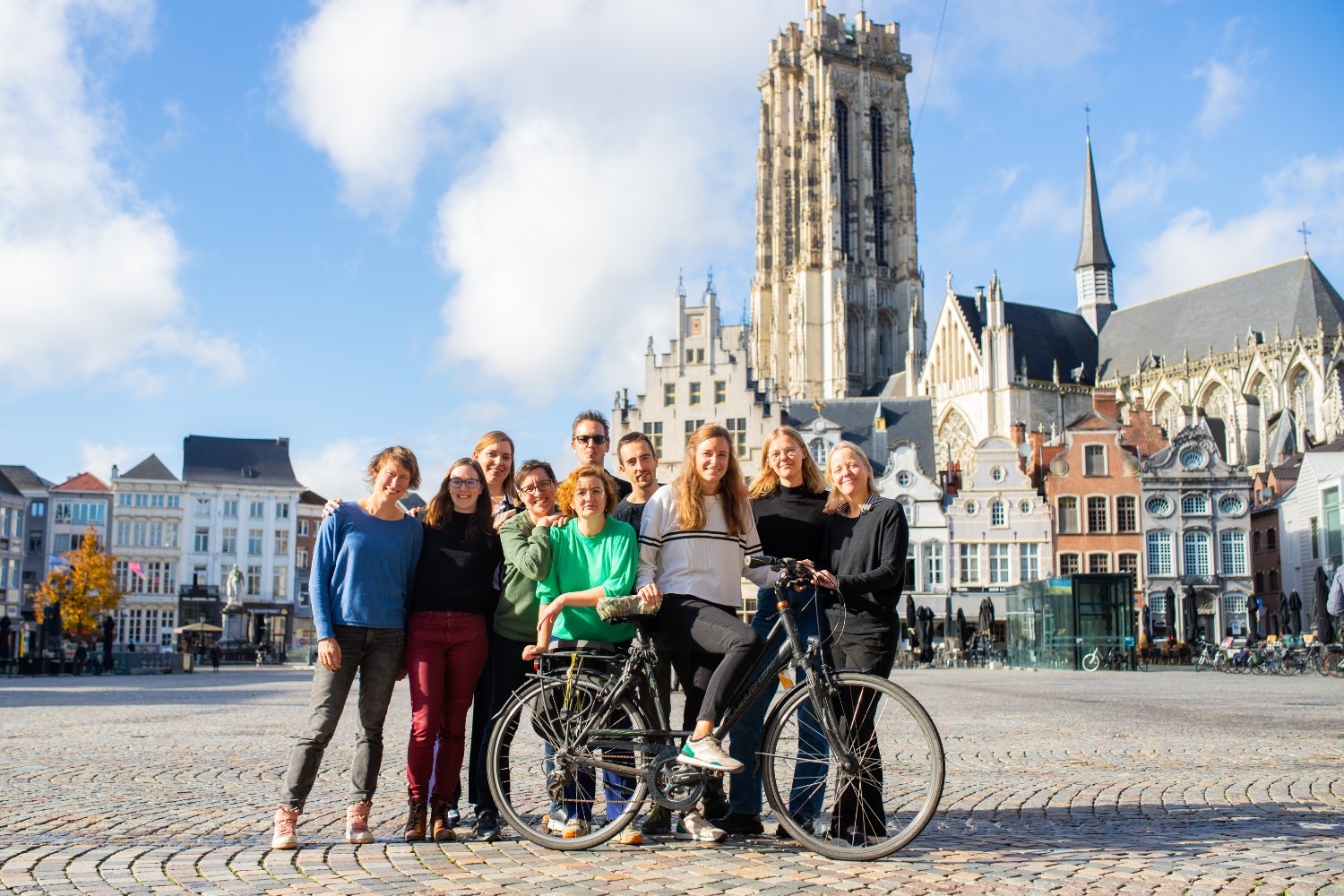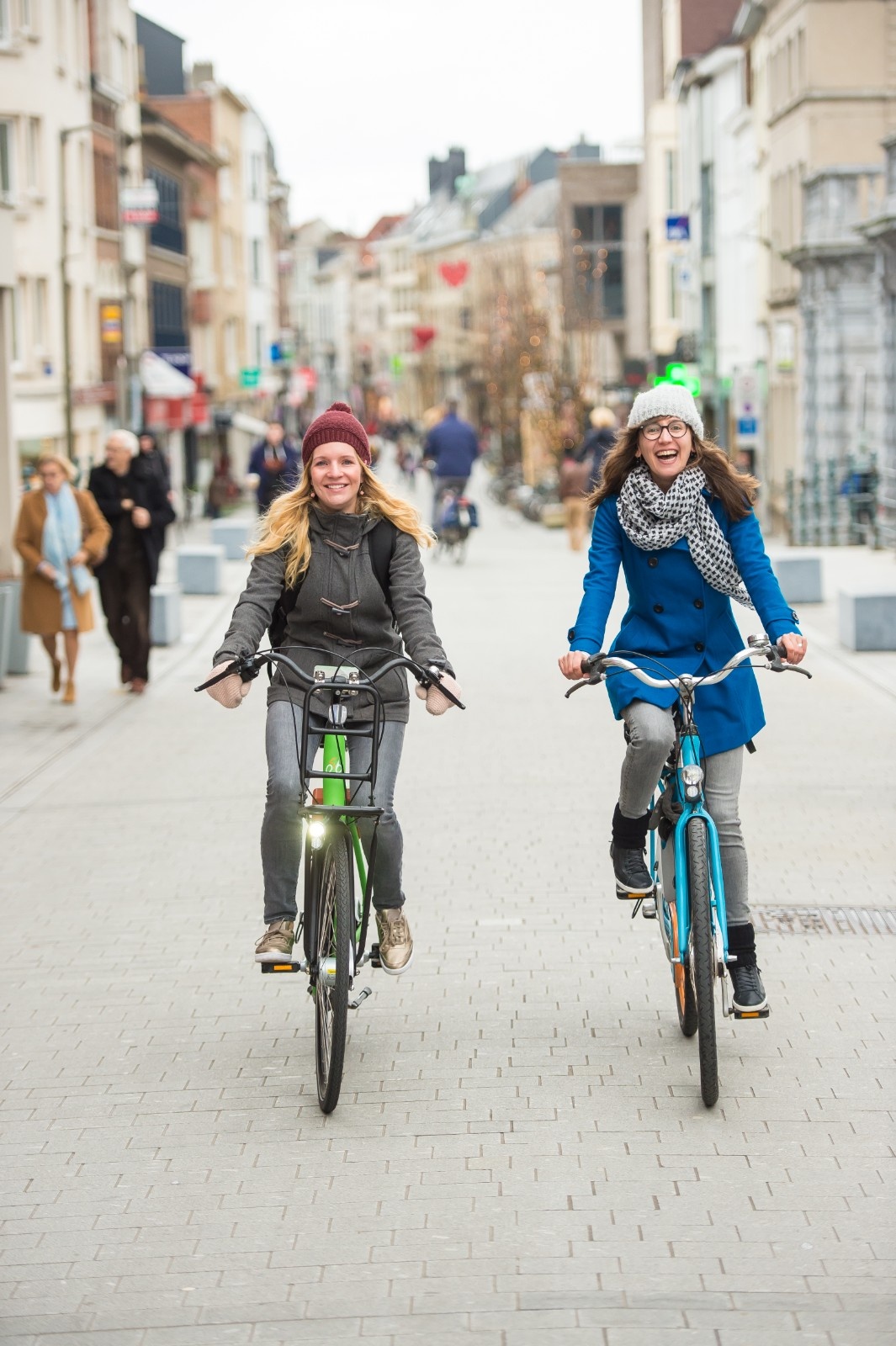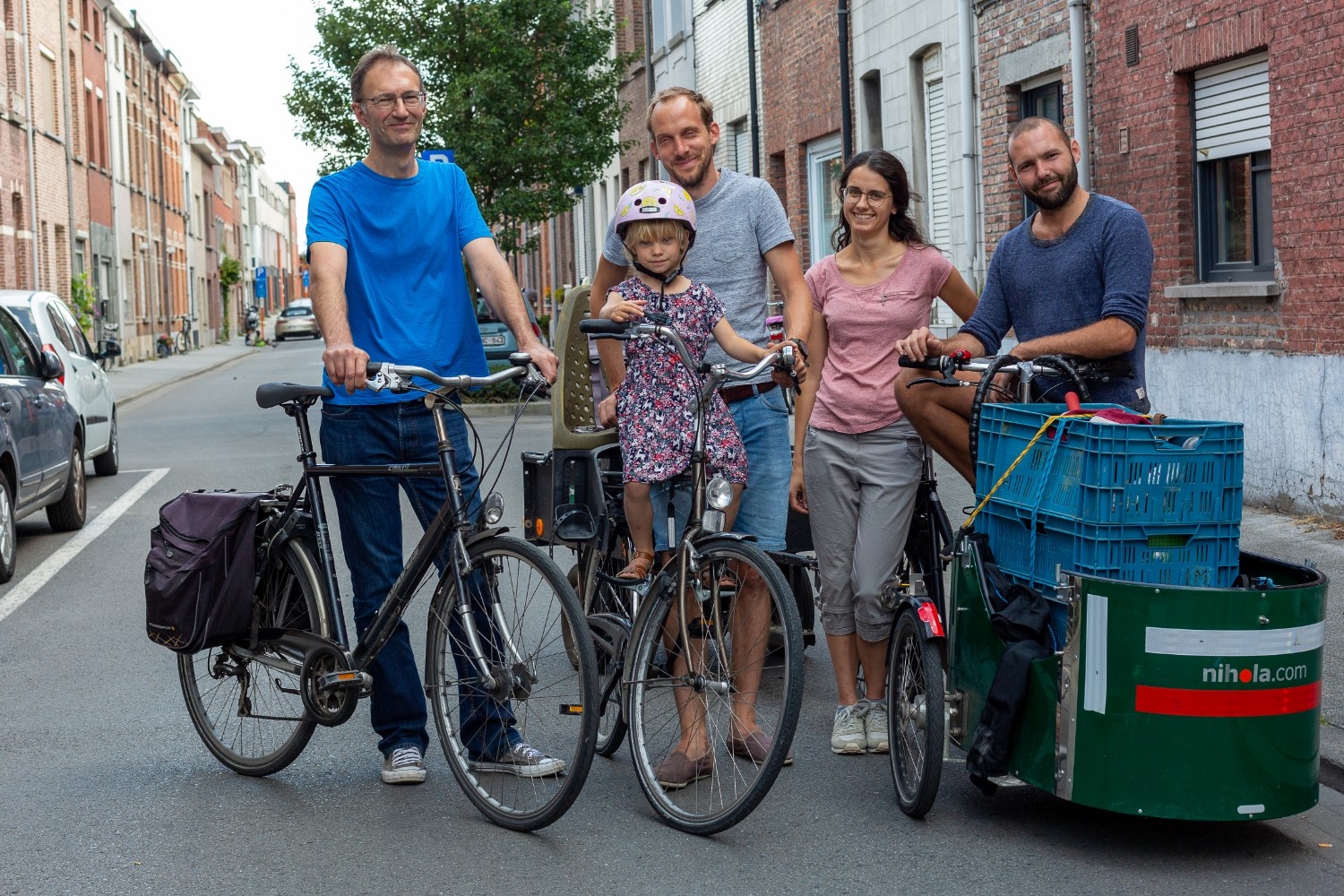More mobility for more Malinois: that is how Mechelen's involvement in SHARE-North Squared can be summarised. More mobility hubs, more shared vehicles on offer, and more users is what Mechelen is going for.
In this interview, Ann Vandeurzen explains how inclusive shared mobility fits within the city's mobility and planning vision and how it contributes to the city's transformation into the Flemish shared mobility frontrunner.
Welcome Ann! Can you introduce yourself?
My name is Ann Vandeurzen and I am part of the mobility team of the City of Mechelen. Our city has about 89,000 inhabitants and continues to grow. Mechelen is strongly committed to urban renewal in order to become climate neutral. This is reflected in our renewal projects and mobility policies.
In recent years, we have worked hard to improve the livability of our city for everyone. Fifteen years ago, for example, the Grand Place was full of cars, but now it has been transformed into a spacious, car-free, lively square. A recent mobility project was the conversion of the ring road around the medieval city center: from four lanes with a lot of traffic in double direction, it was redesigned into two lanes in a single direction. This created green space for parks, children's playgrounds and safe walking and biking paths. Mechelen is also well worth a detour culturally. You can visit historic churches, carillons, a large beguinage and the famous Saint Rombouts tower.
As an innovator, Mechelen is actively involved in many internationally funded projects. These close collaborations all over Europe encourage positive change.

The City of Mechelen's mobility team (copyright: Stad Mechelen).
How did you get involved in SN²?
We always look for initiatives that add value to our city and align with our local policy planning. Mechelen strongly believes in shared mobility and had previous collaborations with the Hanseatic City of Bremen, Way To Go, and Mpact, which were very successful. As a result, we were invited to participate in the SHARE-North Squared project.
Because Mechelen has several social housing neighbourhoods, the social housing company Woonland became our SHARE-North Squared partner. We both are convinced that shared mobility can provide a valuable solution for people living in social housing neighbourhoods.
Woonland is currently renovating a part of their patrimony, which created the opportunity to introduce shared mobility in their social housings, and to convince people to start using shared mobility when they move into one of Woonland's houses or flats.
What do you hope to achieve in this project?
Our primary goal is to promote knowledge about and growth of shared mobility, potentially shifting people away from private car ownership to different sustainable modes of transport. As a city, we therefore implement a network of shared mobility hubs (branded as 'Hoppin hubs' in line with the Flemish regional hub branding), provide financial support to users in the beginning, and lower the barriers to access.
A participatory trajectory in collaboration with our SN² partners Woonland and Way To Go as well as with different shared mobility providers is under development. Personal guidance is provided for those families and individuals who want to try out shared cars and shared bikes for a few months. Moreover, interested residents can contact a community worker to get more information, guidance, and help. Their current spendings on mobility can be compared with the savings possible thanks to shared mobility. When necessary, digital support can also be provided.

Mechelen has an extensive bike sharing offer, including bikes provided by Mobit and Blue-bike (copyright: Stad Mechelen).
What is your biggest contribution to SN²?
Our experience with shared mobility is a major asset. We are introducing shared mobility into social housing areas, which contributes to reducing transport poverty. Other partners in the project are primarily private developers, whereas we as urban administration focus on integrating shared mobility into mobility city planning.
The City of Mechelen amended her general urban planning ordinance, making shared mobility mandatory for new building developments where 12 or more parking spaces have to be implemented. Previously, project developers were not considering implementing shared mobility solutions for their new housing units. This will change in the future as mobility and housing need to be addressed together for sustainable living. Previously, developers could decide to build large housing units without implementing shared mobility solutions. Under the new building ordinance this is no longer possible in Mechelen.
However, we are still learning by doing: in one of the SN² pilots, the homeowners' association decided to vote against the implementation of shared mobility services. This highlights the need for stronger policies to ensure long-term adoption and success of shared mobility. The challenge is that the broader societal benefits of shared mobility are not yet widely understood, so we need to drive this shift in perception. Moreover, in social housing neighbourhoods, financial barriers are a significant challenge. While the shared mobility services are not entirely free, we provide a 'try-out budget' and ensure residents are aware of the costs of vehicle ownership so they can make informed choices.
The City of Mechelen amended her general urban planning ordinance, making shared mobility mandatory for new building developments where 12 or more parking places has to be implemented.
What are you currently working on?
In urban (re)development projects, the real estate companies are guided in integrating sustainable mobility solutions into their housing developments. Developers can buy out parking spaces, but integrated mobility planning remains a priority. The city and the real estate developers are collaborating to find the best solutions for the housing projects following the new general urban planning ordinance.
For the SN² pilots, mobility hubs have been implemented and surveys conducted to assess mobility needs. Additionally, we are developing the start-up mobility budget, and a neighbourhood community worker will soon start to inform residents about shared mobility, in close collaboration with Woonland and Way To Go.
Public participation is also a key focus. Therefore, we are organising multiple sessions that involve the local community.

The Delende Buurten ("Sharing neighbourhoods") initiative in Mechelen allowed residents to test different shared mobility options or to share vehicles with their neighbours (copyright: Stad Mechelen).
What are your learnings so far?
One of the most important lessons for us is that shared mobility must be embedded in urban or municipal building regulations. Policy-driven action is crucial to reduce excessive parking spaces and concrete surfaces, which benefits not just mobility but also livability, health, and climate change mitigation. Additionally, the City of Mechelen signed the Flemish Green Deal 'Shared Mobility & Living' where we can share our knowledge with other municipalities that also want to integrate shared mobility solutions for new project developments in their general urban ordinance.
Another 'lesson learned' is the importance of participation and direct engagement with the residents. By talking with Woonland inhabitants (and not about them), we gained a much clearer understanding of their specific mobility needs. It is essential to tailor shared mobility implementations to each social neighbourhood’s specific needs. This is one of our main learnings from the SHARE-North Squared project so far.
Which difficulties did you face?
One major setback that we had to deal with was the project in the Arsenaal area. As said, the homeowners' association decided to vote against the shared mobility hub, despite the necessity of having such a hub for the broader neighbourhood. This experience showed that it is crucial to have shared mobility requirements embedded in urban policies for the well-being of the broader community.
Currently, our biggest challenge is making the shared mobility hubs attractive enough so that the Woonland inhabitants are encouraged to give the offer a try.
Overall, I am optimistic. I believe that positive change requires close cooperation between the city and its citizens. Concretely, the City of Mechelen provides the shared mobility hubs and offers personalised assistance so that the citizens can change their mobility behavior accordingly. So after all, it are the Malinois themselves who will make the difference.
Applause to the Malinois, and thank you Ann!
Credits
Interview by Steffie De Moor (ex-Mpact)
Edited by Jelten Baguet (Mpact)
Pictures by Stad Mechelen. Banner by Eduard Delputte on Unsplash.
